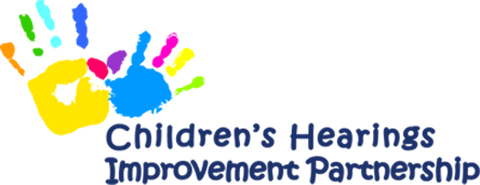SCRA has produced a new research report ‘An exploration of ethnic minority communities’ understanding and awareness of child protection and the Children’s Hearings System in Scotland’ which has been published.
Background
Protection of children at risk of abuse and promotion of their rights continues to be at the forefront of policy and legislative developments in Scotland. Organisations such as the Scottish Children’s Reporter Administration (SCRA) have both legal and ethical duties to protect the well-being and rights of children in Scotland, particularly the most vulnerable.
The increasing ethnic diversity among Scotland’s children raises the question of how effectively SCRA and its partner organisations can identify risks and effectively intervene to protect children of all ethnic backgrounds. However, there has been little research in Scotland on ethnic minorities and their involvement in child protection services.
The research
This research aimed to explore with agencies and third sector bodies working with ethnic minority groups in Scotland:
- their service users’ understanding of child protection and children’s rights; and
- what SCRA (and its partner agencies) could do to make the Children’s Hearings System more responsive and accessible to families from Scotland’s ethnic minorities and raise awareness of child protection and the role of the Hearings System within these communities.
The research comprised of:
- A review of the published literature on barriers to engaging ethnic minority communities in child protection.
- An electronic survey of 182 professionals working universal services on their views of what factors might affect ethnic minority children and families accessing child protection services.
- Interviews and focus groups with 31 individuals from 10 organisations working directly with children and families from Scotland’s ethnic minorities.
The findings
The barriers to services engaging with ethnic minority families in Scotland were found to be:
Language and communication barriers, and linked to this concerns about confidentiality and poor quality of translation.
Fear and distrust of services, and likelihood that services may underestimate the extent that ethnic minority community members fear them.
Lack of knowledge of services and child protection, and that this may have wider implications for minority communities’ integration and participation in Scottish society.
Culture-specific parenting in terms of lack of understanding of abuse and neglect, and differences in concepts of good parenting and protecting their child.
That child welfare is the concern of the family rather than the state, and lack of understanding of children’s (and adults) rights.
The perception that services are racist or culturally insensitive was the barrier rated lowest, although it was acknowledged to exist. The more significant barrier to services intervening to protect a child were difficulties in finding out when a child was at risk due to the insular nature of some communities.
Recommendations
The report made a number of recommendations, including:
Improve cultural awareness:
SCRA to establish a system of sharing of anonymised case studies where referral related to FGM, forced marriage, child trafficking, cultural differences in parenting (e.g. physical chastisement), and experience of working with families from minority ethnic groups.
SCRA to improve its ability to record, report on and monitor ethnicity of children and young people involved in the Hearings System.
SCRA at local and national level, to find out the main lines of contact with organisations which support minority ethnic families (and other marginalised groups) and establish mutually beneficial relationships with them – to improve their understanding of child protection and SCRA’s understanding of the issues facing marginalised children and families.
All CHIP agencies – to raise awareness amongst their staff on the extent that families from marginalised communities fear involvement with services, and how this may impact on their engagement with them.
Raising awareness of child protection and the Hearings System:
SCRA to provide its staff with protected time to engage with different communities/ groups; give presentations to schools, third sector organisations, religious organisations, health professionals, etc.
CHIP to produce information materials for children young people and parents who have none or very little knowledge of the Hearings System and law related to child protection and children’s rights in Scotland. These materials to be circulated via libraries, schools, colleges, nurseries, religious organisations, third sector organisations, hospitals, etc.; and to be in different languages, in formats suitable for those with limited literacy, and age appropriate. To do this will require dedicated resources.
You can view the full research report here.
